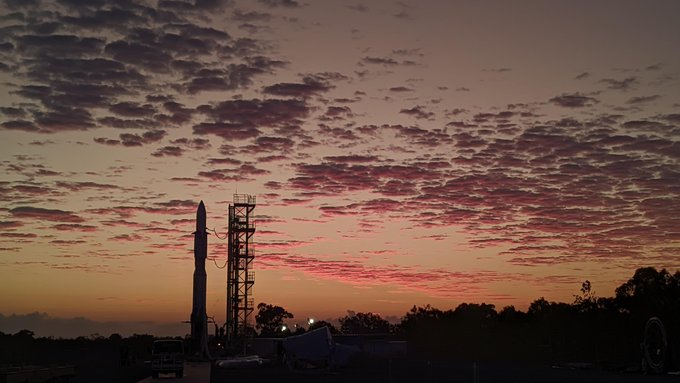
Update for 5:30 p.m. ET on May 14: Gilmour Space announced on May 14 that it's no longer targeting a launch on that date, due to an issue detected with the ground support system. The next opportunity will come on Thursday (May 15; Friday May 16 Australian time).
Gilmour Space is gearing up for the launch of the first Australian-designed and manufactured orbital rocket that could lift off from Australian soil for the first time.
The Australia-based company announced Tuesday (May 13) that the Eris-1 rocket passed its launch readiness review (LRR) and had secured its launch license from Australia's Civil Aviation Safety Authority (CASA). Now, Eris-1 waits at the launchpad to begin the countdown for its first test flight. "LRR was the last major review of rocket, payload, range & weather," the company said in an online post.
Eris-1 will lift off from Gilmour's Bowen Orbital Spaceport in northern Queensland, during a 10-hour launch window beginning May 14 at 5:30 p.m. EDT (2130 GMT; 7:30 a.m. local time, May 15). Gilmore had previously targeted March 15 for Eris-1's debut, but the development of Tropical Cyclone Alfred leading up to that date prevented the first attempt.
Since its opening in 2015, Gilmour Space has grown to over 200 employees supporting their operations on Queensland's Gold Coast, where the company developed its spaceport and launch vehicle almost entirely from domestic resources, touting an Australian supply chain network of over 300 companies.
The three-stage Eris rocket stands 82 feet (25 meters) tall and is designed to deliver up to 474 pounds (215 kilograms) to sun-synchronous orbit. The rocket's maiden voyage, designated TestFlight1, will be the first of several for the launch vehicle, as Gilmour Space qualifies its systems and propulsion technology.
"Whether we make it off the pad, reach max Q, or get all the way to space, what's important is that every second of flight will deliver valuable data that will improve our rocket's reliability and performance for future launches," Gilmour Space co-founder and CEO Adam Gilmour in a press release in February.







